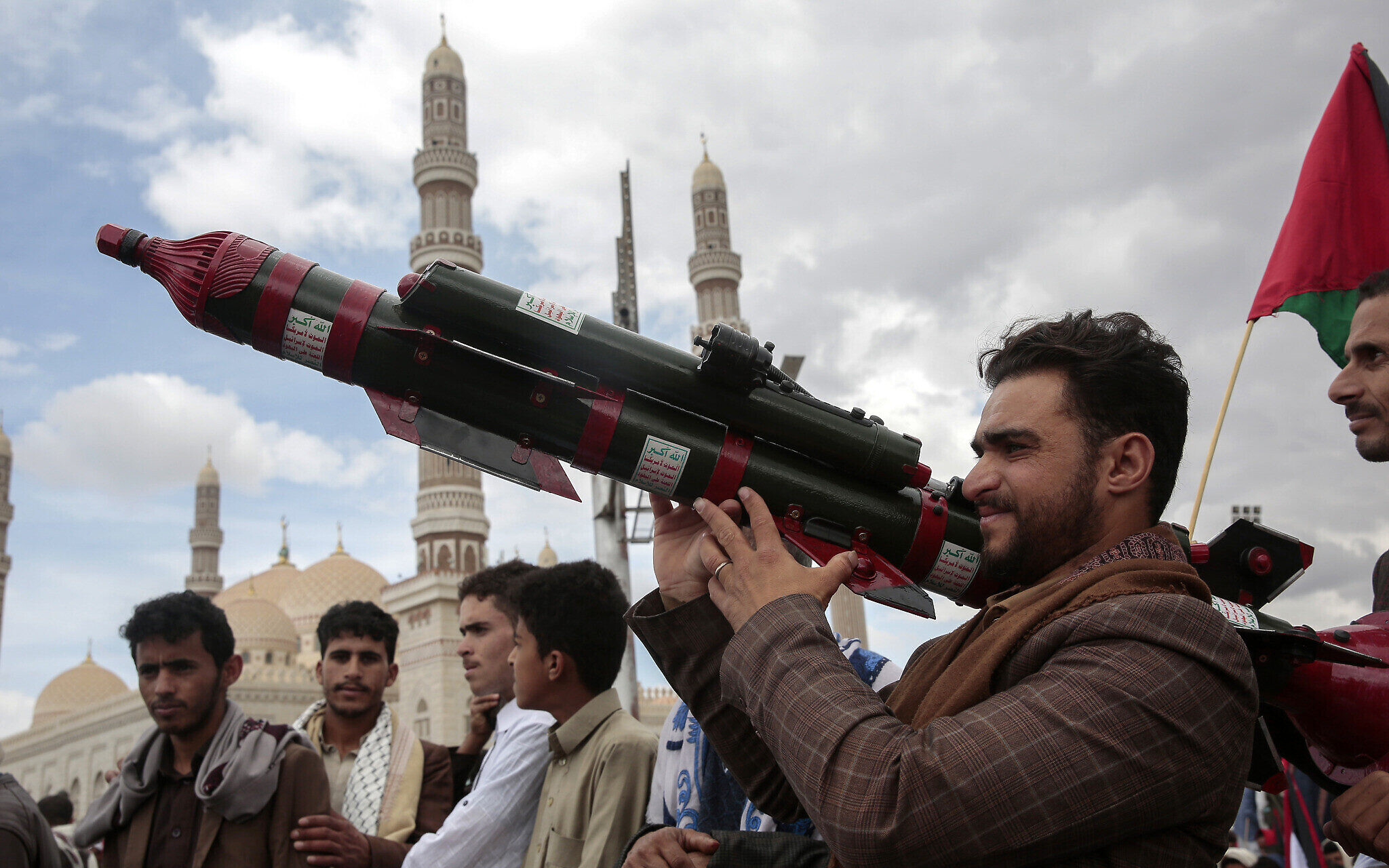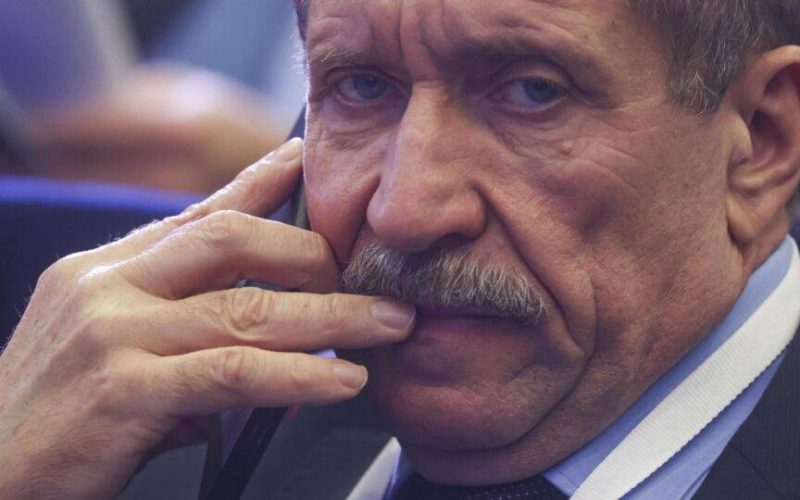In a new twist to the ongoing maritime unrest, reports have surfaced claiming that Russia is aiding Yemen’s Houthi rebels in targeting Western vessels in the Red Sea, with alleged involvement from notorious arms dealer Viktor Bout. Until recently, attacks from Houthi forces disrupted vital trade routes, prompting the U.S. and British navies to step in with retaliatory strikes and patrols. But even with these efforts, the Houthis remain undeterred, using increasingly sophisticated tactics and weaponry.
The Houthis are unlike any adversary Western forces have faced recently. They’re not a straightforward military, insurgent group, or even a criminal gang. Instead, they’re a potent militia using modern weaponry typically reserved for state militaries to force the world’s attention on their cause. The group has proven it can attack with precision, making it one of the most dangerous threats to international trade in the region.
A report from the Wall Street Journal claims that the Houthis have received targeting data from Russian satellites, reportedly passed on through members of Iran’s Islamic Revolutionary Guard Corps (IRGC) embedded within the Houthi ranks. This intel has allegedly empowered the Houthis to intensify attacks on Western-linked ships, triggering more alarm worldwide. Russia’s involvement, if confirmed, highlights a new layer of complexity as it appears aimed at destabilizing the region amidst ongoing Middle Eastern tensions.
But why would Russia go this route?
According to defense officials, this shift in alliance outlines President Putin’s pivot towards supporting Iran and undermining the U.S. and its allies. Historically, Russia has maintained a working relationship with Israel. However, as Israeli operations against Iran-backed militias have intensified, Russia has edged closer to Iran.
The Houthi campaign against Western vessels has brought massive disruption, forcing cargo ships to take longer, costlier routes. The toll is evident—since November 2023, over 100 vessels have come under Houthi attack, with two ships reportedly sunk and another hijacked. Just this October, they targeted a Liberian-flagged vessel with a barrage of missiles and drones. In September, they even fired a missile reaching central Israel, though it was intercepted.
Some speculate that the Houthis’ weaponry may even include hypersonic missiles, a claim the group boasts about, although it remains unverified. Such claims seem designed to keep the world on edge, indicating how dangerous this campaign has become with sophisticated backing.
On October 10, the Yemeni Houthi militia struck a Liberian-flagged vessel using drones and missiles. Less than a month earlier, they fired a missile aimed at central Israel, which was fortunately intercepted. The Houthis even claimed it was a hypersonic missile, though experts are doubtful—yet this bold claim plays into their strategy of stoking global fear over what might come next.

Enter Viktor Bout – The Arms Dealer Extraordinaire
Recent reports suggest that the Houthis are in discussions with Russia’s most infamous arms dealer, Viktor Bout, to secure more advanced weaponry. Bout, known worldwide as the “Merchant of Death,” is a former operative for Russia’s GRU intelligence agency and spent decades supplying weapons to militant groups across the globe, leaving a trail of devastation. His notoriety and the terror his weapons enabled are unmatched.
In 2008, Bout was arrested in a U.S.-led sting operation in Thailand, leading to a 25-year sentence in the U.S. on multiple charges, including conspiracy to kill Americans. But in 2022, the U.S. traded him for American basketball star Brittney Griner, a decision that alarmed former DEA officials and U.S. military personnel. They feared the repercussions of Bout’s freedom, knowing that he still held strong Kremlin ties.
As one former DEA official warned, even after Bout formally left the GRU, he continued to receive backing from powerful Russian circles.
However, the Biden administration judged that the Bout of 2022 posed less threat than the Bout of the early 2000s. Now, with Bout back in the game, those assumptions are being tested.
Bout’s Arsenal and the Potential Red Sea Threat
Before his arrest, Bout offered his clients an arsenal that reads like a warlord’s dream list: 30,000 AK-47s, millions of rounds of ammunition, grenade launchers, C-4 plastic explosives, ultralight planes armed with grenade launchers, drones, sniper rifles with night vision, anti-aircraft cannons, and hundreds of MANPADs (man-portable air-defense systems).
In early October, the Wall Street Journal reported that the first shipments to the Houthis might include upgraded AK-74s, anti-tank missiles, and possibly anti-aircraft systems. While automatic rifles may support the Houthis’ fight against Yemen’s official government, it’s the more substantial weaponry that Western nations should be concerned about. With Bout potentially brokering advanced arms, anti-ship missiles and sophisticated defense systems could soon find their way to the Houthis, escalating the already high-stakes scenario in the Red Sea.
Kremlin Support or Freelance Venture?
Bout’s discussions with the Houthis are unlikely to be a solo mission. Since his release, he’s become a celebrated figure in Russian media and was even elected to the Ulyanovsk state parliament. His reappearance on the arms scene likely aligns with Russia’s broader strategy. And given his close ties to the Russian state, there’s little doubt that Bout’s activities are well within the Kremlin’s radar—if not outright supported.
As the Houthis aim to intensify their assault on Western ships, the potential influx of arms through Bout raises concerns for global trade security. With the possibility of more advanced Russian arms flowing into the region, Western navies may soon find themselves dealing with a much more formidable threat. The reemergence of Viktor Bout signals that these dangerous waters are about to get even more perilous.
Reports indicate that the Kremlin is actively supporting Yemen’s Houthi militia, with Iran acting as the middleman in talks to provide them with advanced P-800 Oniks anti-ship missiles.
According to Reuters, these missiles, boasting a 300-kilometer (186-mile) range and equipped with a 200-kilogram (440-pound) warhead, are powerful enough to pose a serious threat to any vessel in the Red Sea, including Western naval forces deployed to safeguard commercial ships. Should these P-800 Oniks missiles reach Houthi hands, shipping companies may have no choice but to withdraw entirely from this critical maritime route, adding immense pressure on global trade.
Retired Vice Adm. Duncan Potts, who led the European Union’s counter-piracy operations in the Indian Ocean during the 2010s, emphasized the threat this development poses.
He noted, “The very notion of the high seas is now challenged, and once state and/or nonstate actors, especially proxies, discover a new approach that has strategic, operational, and tactical impact, it will only be mimicked by others.” Potts warns that defending against sophisticated weapons requires equally complex defenses—something that only a few navies can manage due to the high costs and logistical demands.

Who Are The Houthis Sparing?
Since the Houthis began their campaign against international shipping last November, they’ve been selective in their targets, sparing Russian and Chinese vessels.
These two nations, it seems, are indirectly supporting the Houthi attacks by not pressuring them to end the campaign.
In previous anti-piracy efforts, China actively participated, sending naval forces to escort ships through dangerous waters. This time, however, the responsibility falls largely on Western navies, who continue to protect all vessels in the Red Sea regardless of their flag or ownership.
As Russia supports Houthi strikes on Western-linked vessels, the shipping industry is fragmenting, dividing the seas and adding to both risk and cost. A divided ocean, one where certain routes become perilous due to geopolitical alliances, may be the new norm—a shift that could have far-reaching implications for international trade and security in the following months or even years!










